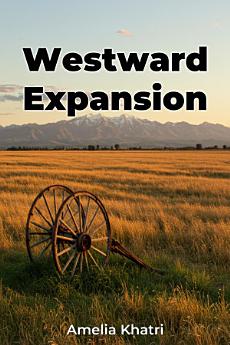Westward Expansion
Mar 2025 · Publifye AS
Ebook
53
Pages
family_home
Eligible
info
reportRatings and reviews aren’t verified Learn More
About this ebook
""Westward Expansion"" explores the United States' dramatic transformation into a continental power, focusing on the period of American expansionism. The book argues that this expansion wasn't a straightforward process but a series of contested interactions shaped by competing interests and power dynamics. From the allure of economic opportunity to the concept of Manifest Destiny, the book examines the key motivations behind the westward movement, including land hunger and resource exploitation. A significant portion of the book addresses the conflicts between settlers and indigenous tribes, highlighting the devastating impacts of removal policies, disease, and warfare, while also acknowledging the resilience of indigenous cultures. For example, the construction of the transcontinental railroad, while a symbol of national unity and technological advancement, relied on exploited labor and led to environmental degradation. The book progresses chronologically, starting with the historical context of early American expansionism and then exploring the primary drivers of westward movement. The book also analyzes the transformative role of railroads in accelerating westward expansion by connecting distant markets and fueling economic growth. This historical account draws on a variety of sources, including government documents, personal diaries, and recent scholarship in Native American and environmental history, to provide a comprehensive and accessible analysis of this formative period. By incorporating diverse perspectives and engaging with ongoing debates about the legacy of westward expansion, the book encourages readers to critically examine the past and consider its relevance to the present.
Rate this ebook
Tell us what you think.
Reading information
Smartphones and tablets
Install the Google Play Books app for Android and iPad/iPhone. It syncs automatically with your account and allows you to read online or offline wherever you are.
Laptops and computers
You can listen to audiobooks purchased on Google Play using your computer's web browser.
eReaders and other devices
To read on e-ink devices like Kobo eReaders, you'll need to download a file and transfer it to your device. Follow the detailed Help Center instructions to transfer the files to supported eReaders.








